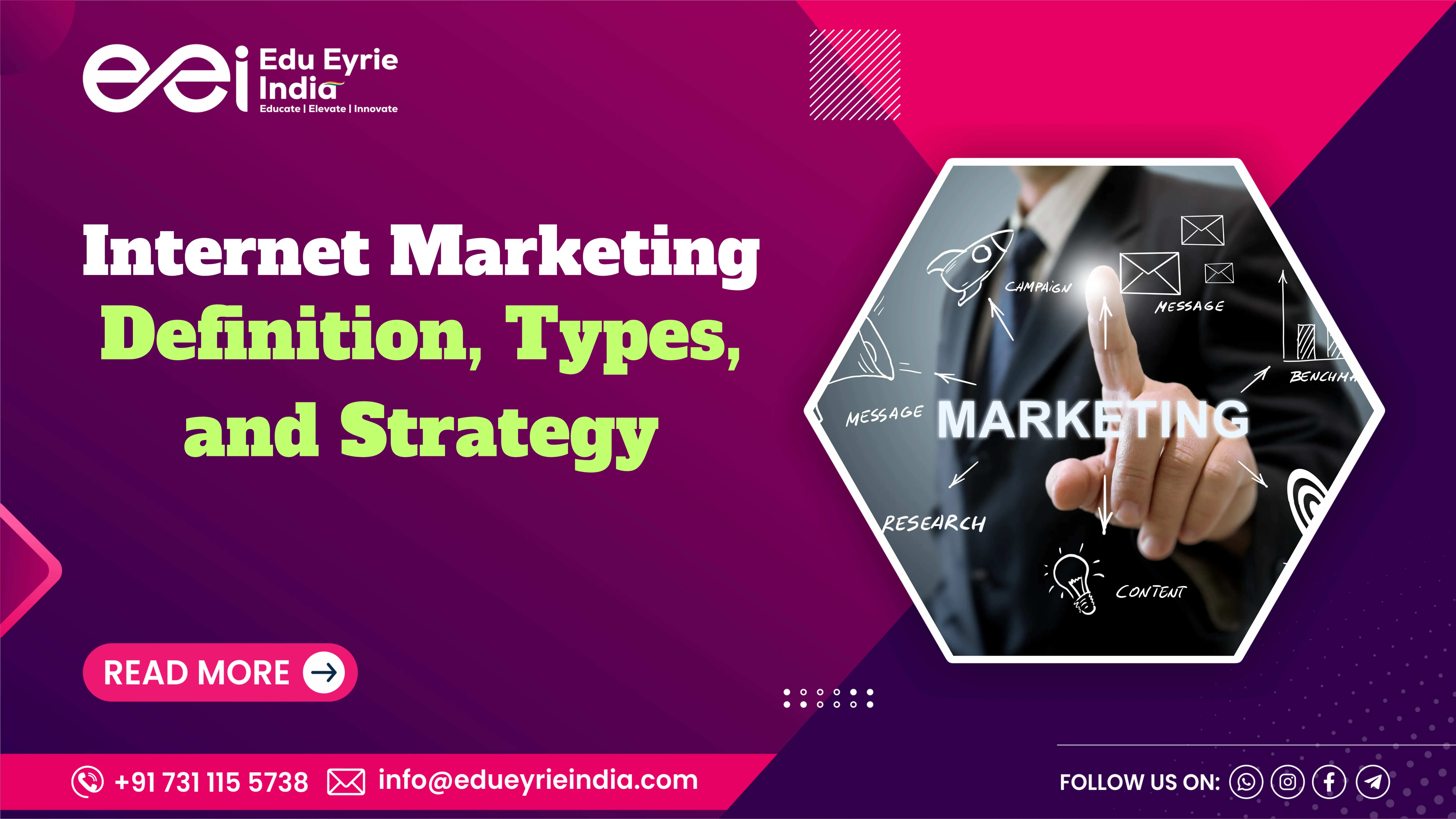In today’s fast-paced and interconnected world, the internet has become essential in our daily lives. Businesses of all sizes are leveraging the online market to reach a global audience and thrive in the digital age. A central tactic driving this shift is Internet Marketing.
Table of Contents
- What is Internet Marketing?
- Types of Internet Marketing
- Importance of Internet Marketing
- Steps to Create an Internet Marketing Strategy
- Content Marketing vs. Traditional Advertising
- Conclusion
What is Internet Marketing?
Internet marketing, also known as online marketing, includes all promotional efforts using the internet and web-based technologies to market products and services. These strategies range from SEO, which optimizes websites for organic search engine visibility, to email marketing, social media ads, display ads, affiliate programs, and more. The goal is to connect with potential customers online, engage them, and convert them into loyal buyers.
Types of Internet Marketing
Different types of internet marketing target unique aspects of the online marketplace:
- Search Engine Optimization (SEO): SEO boosts a website’s organic visibility on search engines by optimizing content, keywords, meta tags, and backlinks.
- Social Media Marketing (SMM): SMM uses platforms like LinkedIn, Facebook, X (Twitter), and Instagram to connect and engage with audiences, build brand awareness, and drive website traffic.
- Content Marketing: This involves creating valuable, relevant, and consistent content (videos, blogs, eBooks, infographics) to attract a defined audience.
- Email Marketing: Strategic email campaigns help build relationships, deliver tailored content, showcase products, and increase conversions.
- Pay-Per-Click (PPC): A model where advertisers pay per click on their ads. It includes platforms like Google Ads and Facebook Ads, targeting users based on search queries or social engagement.
- Affiliate Marketing: Companies reward affiliates for bringing traffic or sales through their promotional efforts.
- Influencer Marketing: Collaborating with online personalities with large followings to promote products.
- Online Public Relations (PR): Online PR manages a brand’s reputation, using press releases, social media, and community engagement.
- Referral Marketing: This approach leverages word-of-mouth and recommendations from satisfied customers.
- Mobile Marketing: Targeting mobile users through SMS marketing, mobile-optimized websites, or apps.
Importance of Internet Marketing
Internet marketing is essential for several reasons:
- Global Outreach: It allows businesses to reach a diverse global audience, expanding their brand’s exposure and customer base.
- Brand Visibility and Credibility: Consistent, high-quality content helps establish authority in the industry, building trust.
- Cost-Effectiveness: Internet marketing is often more budget-friendly than traditional advertising, offering measurable ROI.
- Faster Sales Process: Online marketing streamlines sales cycles with instant information access and smooth transactions.
- Search Engine Visibility: SEO and other online marketing tactics improve visibility, as consumers commonly start with search engines.
- Adaptability: The digital landscape requires constant innovation, and internet marketing offers flexibility to adapt to trends.
How to Create an Internet Marketing Strategy
Building an effective internet marketing strategy involves thoughtful planning:
- Define Goals: Clarify your objectives, whether it’s brand awareness, traffic, lead generation, or sales.
- Know Your Target Audience: Create detailed buyer personas to understand demographics, interests, and pain points.
- Competitor Analysis: Examine competitors to identify gaps and opportunities.
- Choose the Right Channels: Select the most relevant platforms (social media, SEO, email) for your audience.
- Content Strategy: Develop valuable, consistent content aligned with your brand and audience needs.
- Optimize Content: Enhance your content for SEO with keywords, meta tags, and backlinks.
- Run Digital Campaigns: Use integrated campaigns combining social media, email, and ads for consistent messaging.
- Budget Allocation: Allocate funds across channels effectively, adjusting based on performance.
- Adapt and Evolve: Stay agile, revising strategies based on trends and customer feedback.
- Legal and Ethical Compliance: Ensure campaigns comply with privacy laws and industry standards.
Content Marketing vs. Traditional Advertising

Conclusion
Mastering internet marketing is crucial for businesses aiming for long-term success. By understanding the types of internet marketing and crafting effective strategies, companies can harness the internet’s potential to engage audiences, foster relationships, and achieve marketing objectives. Staying adaptable and informed about new trends is key to thriving in the dynamic world of internet marketing.
By Edu Eyrie India | Last updated on November 13, 2024

